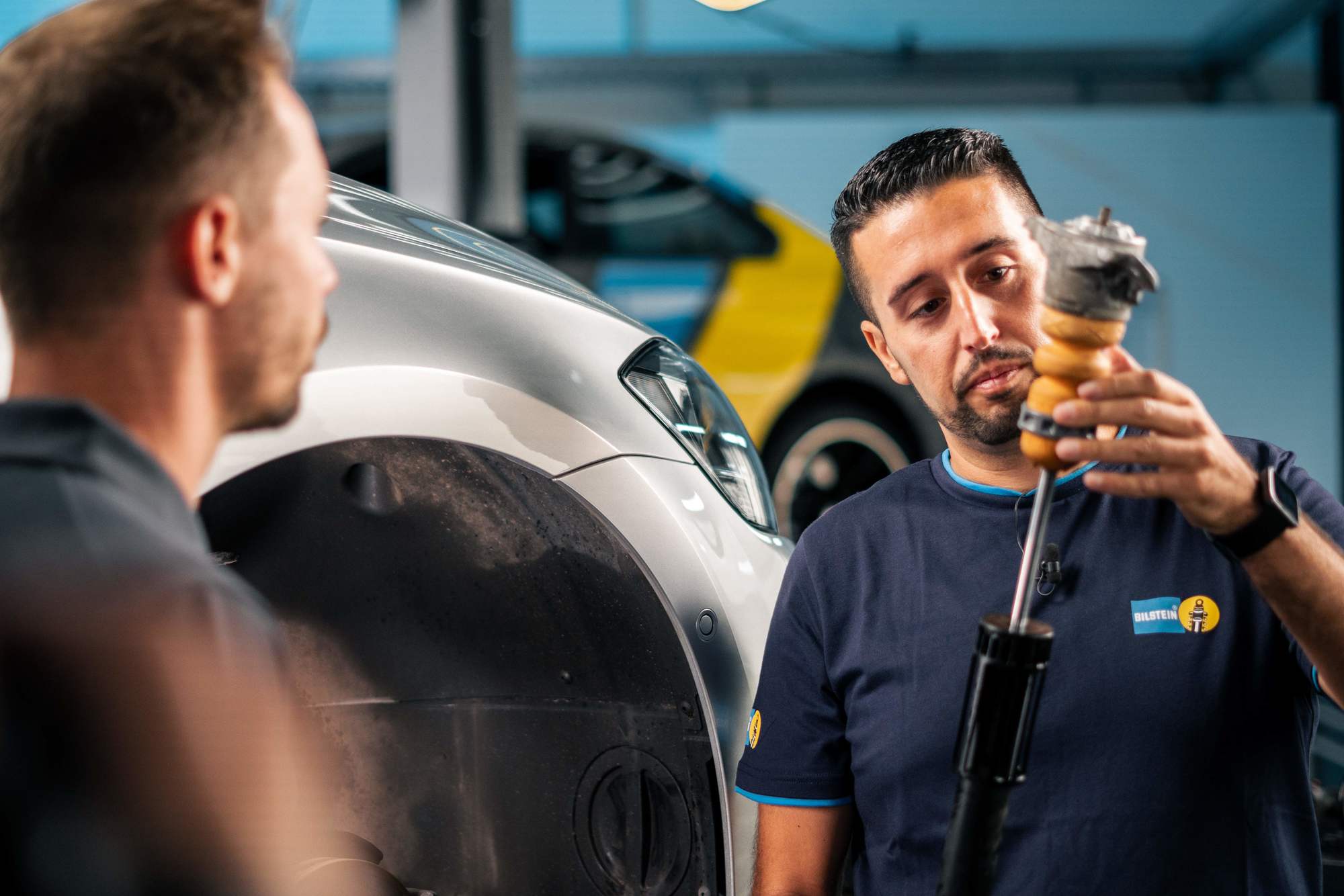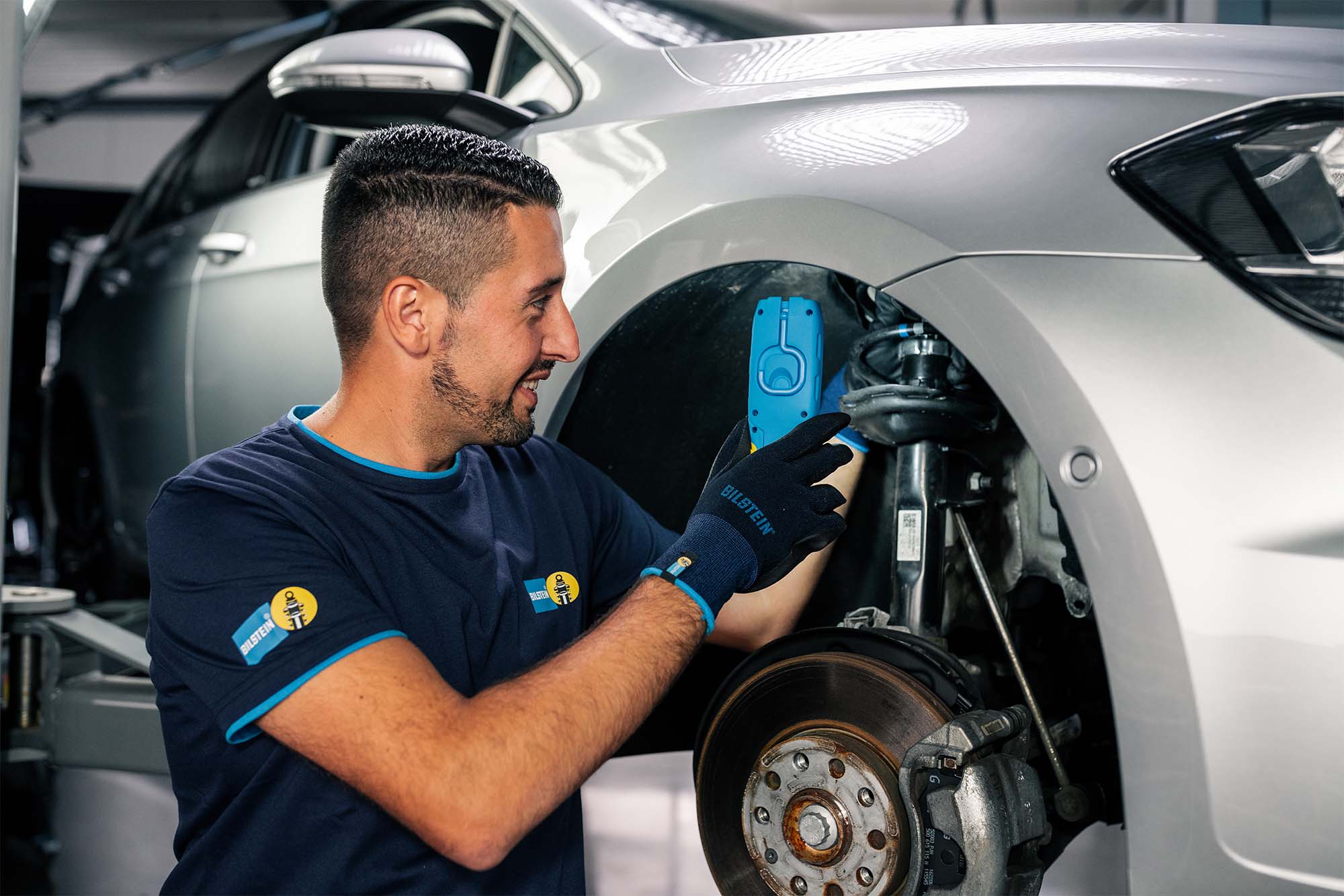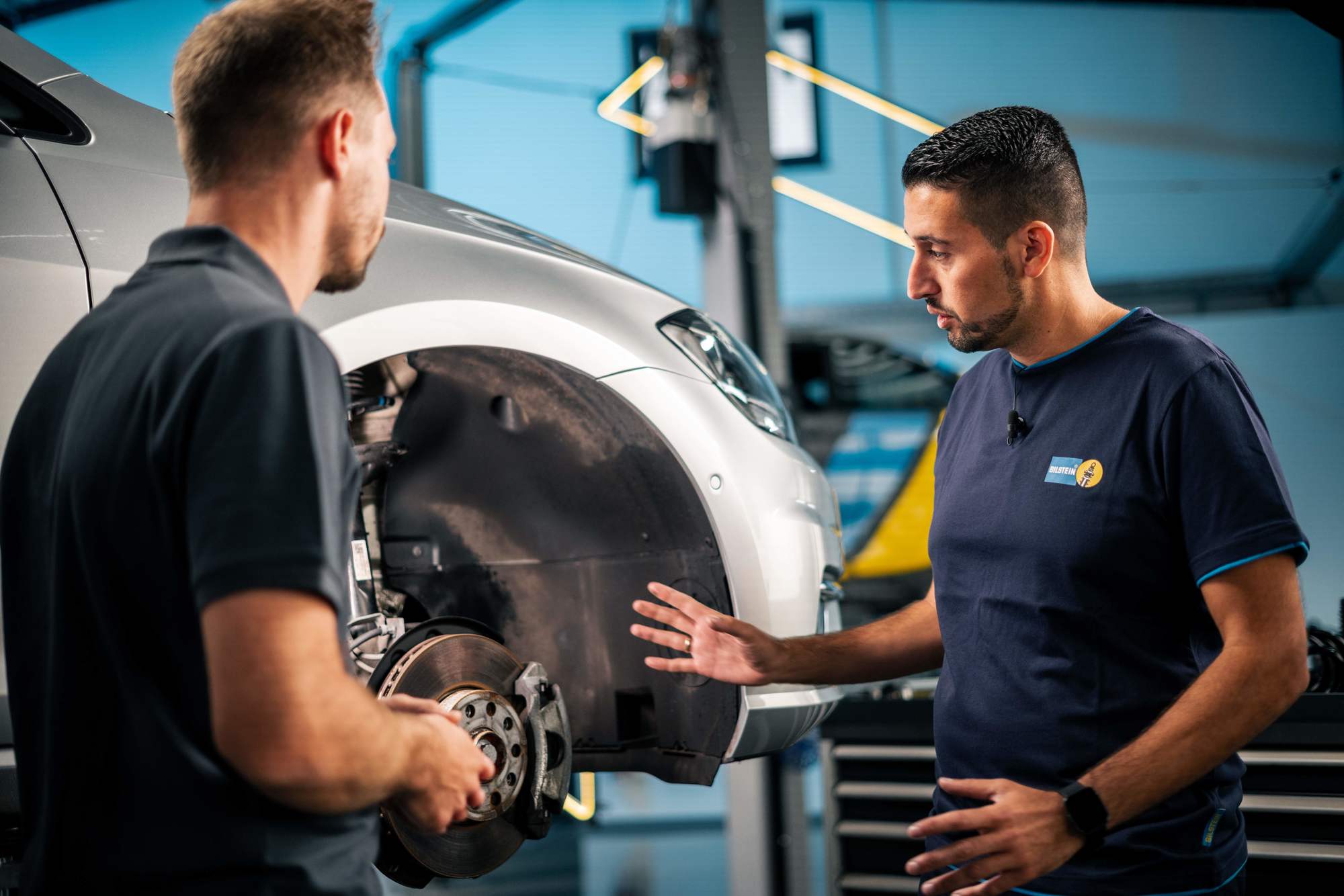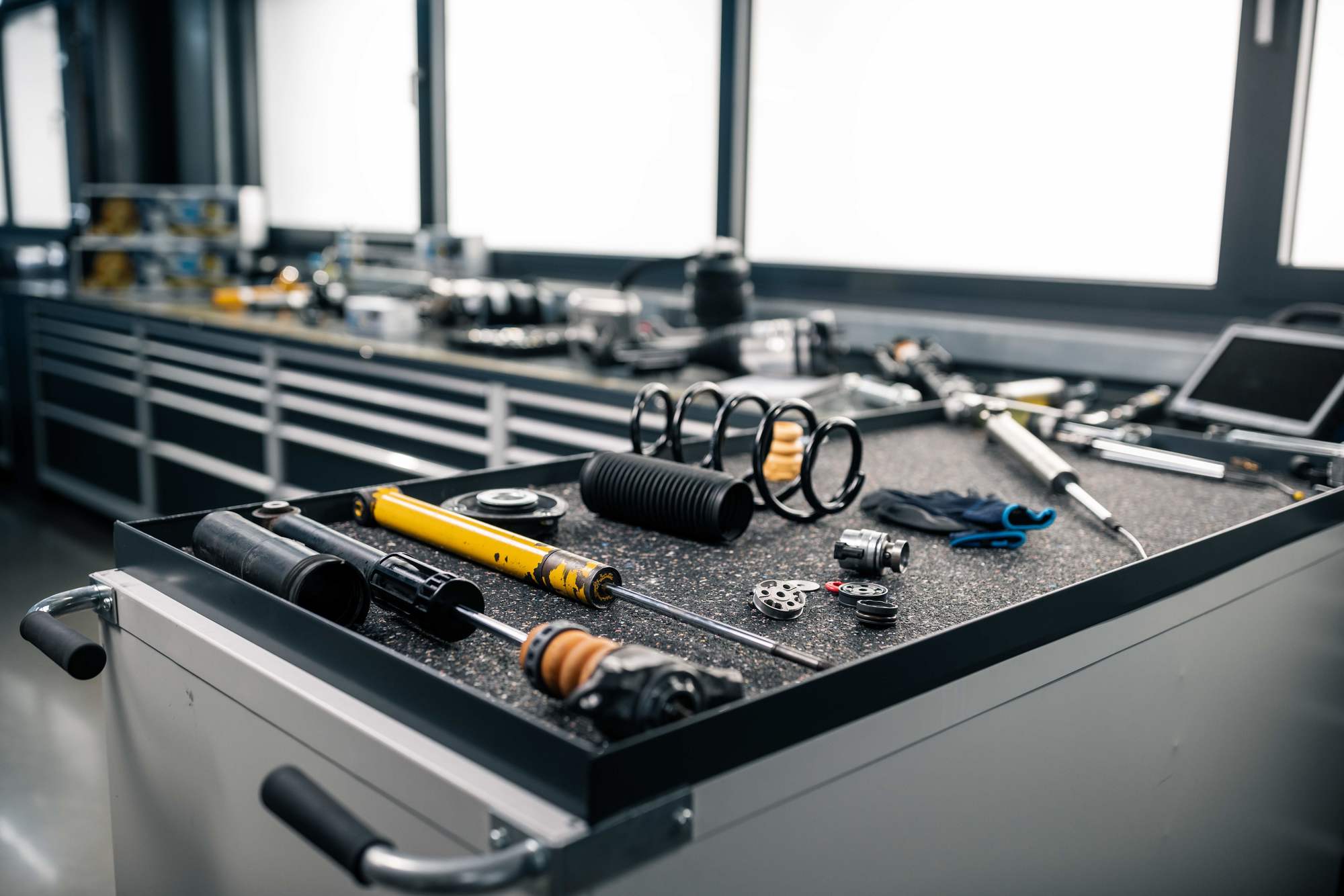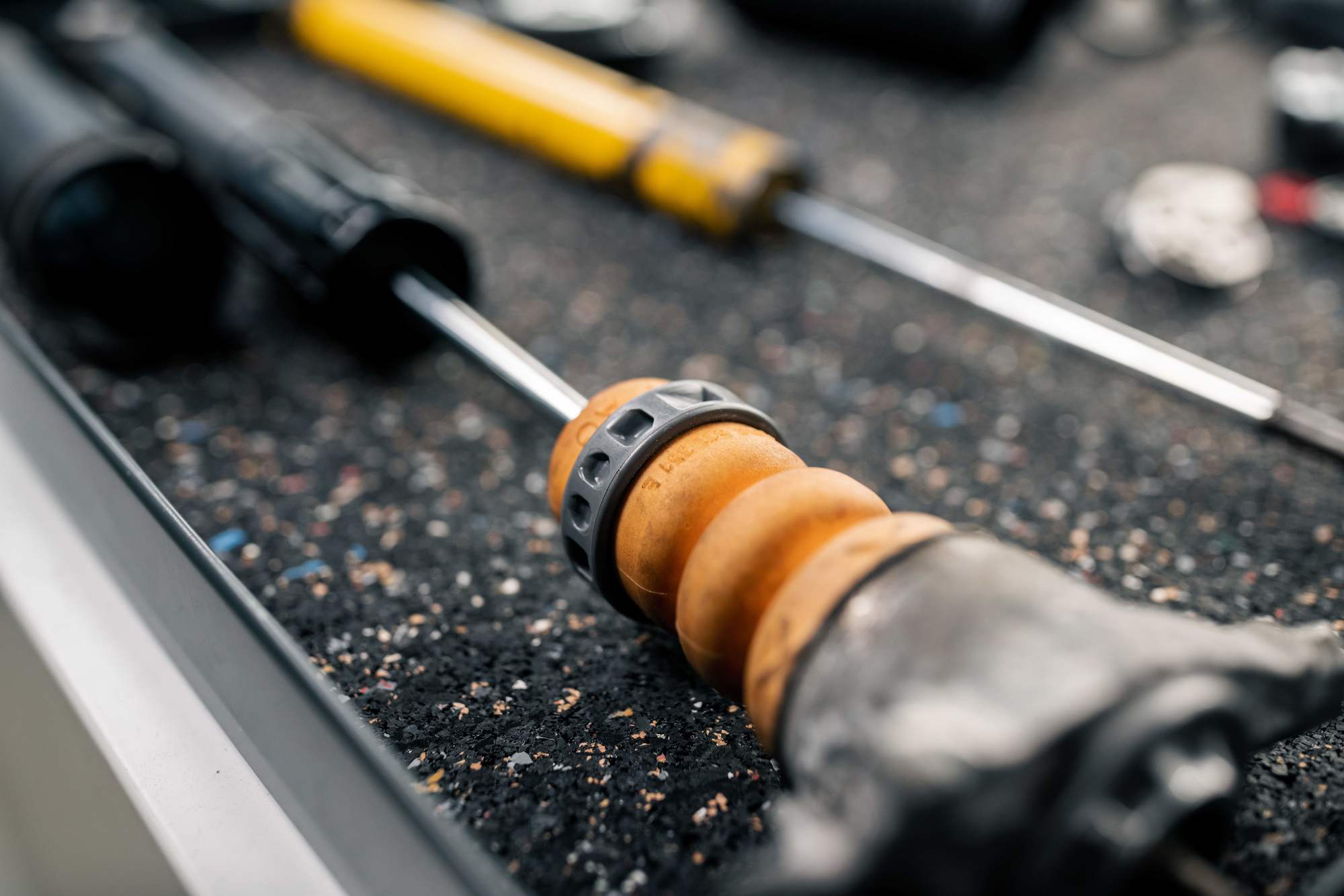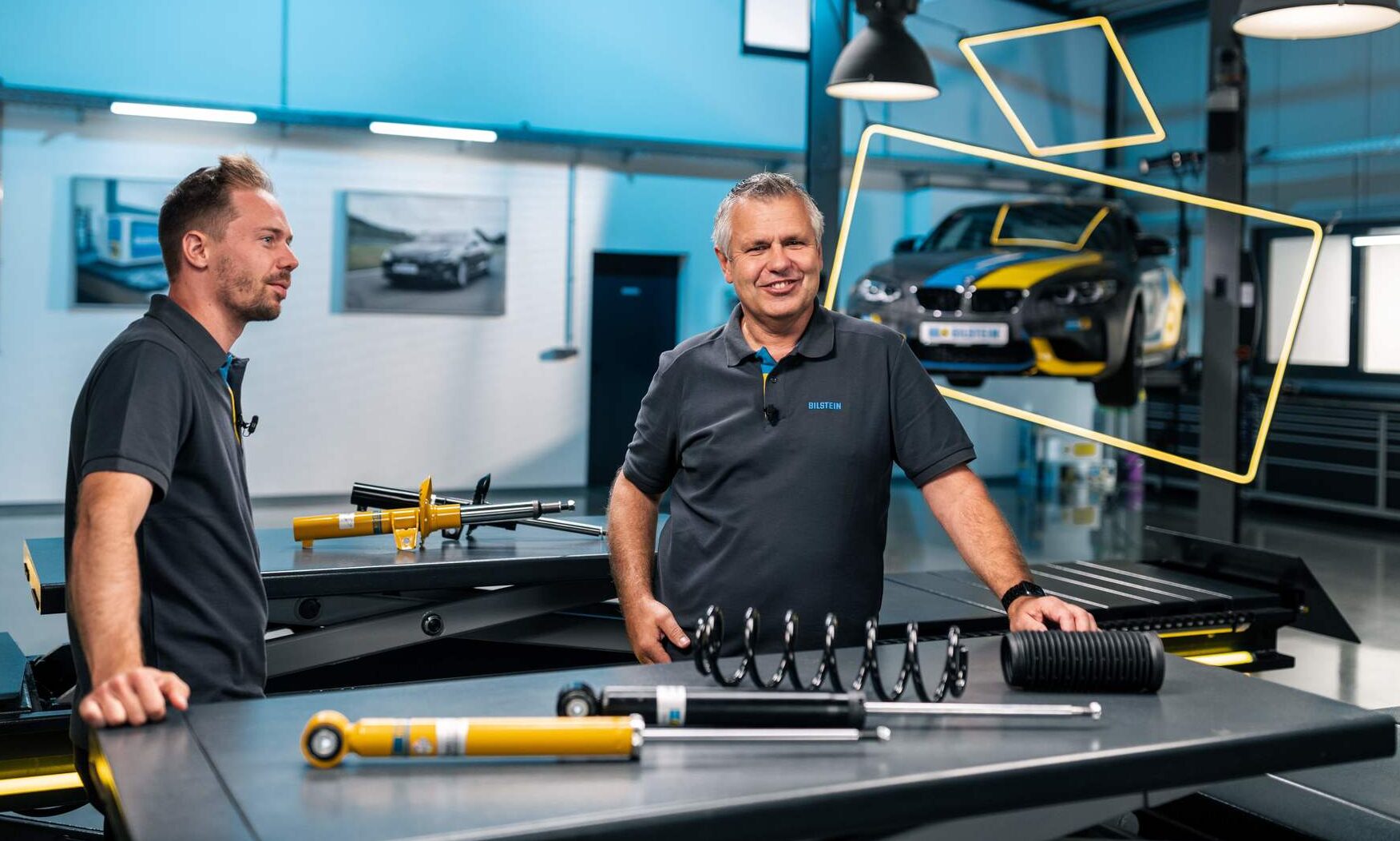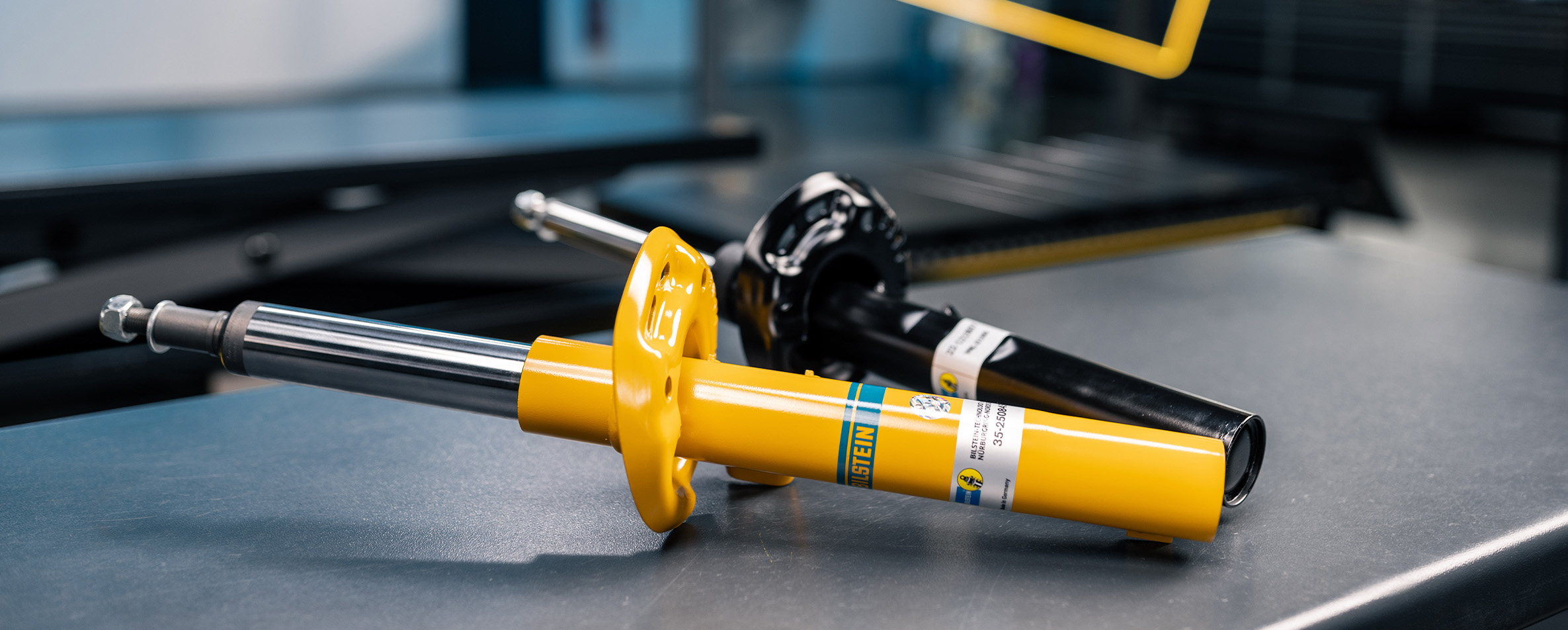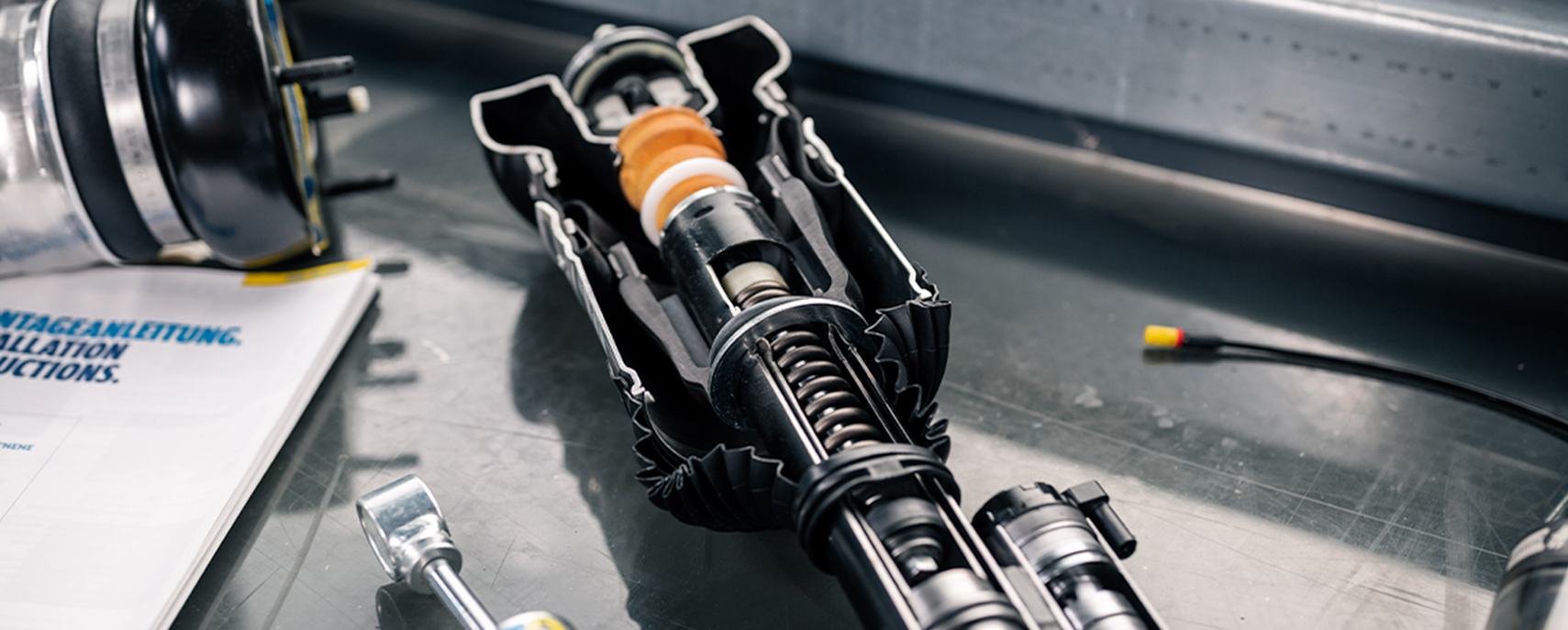

Workshop Tip #1: Suspension test and damage diagnosis
A car’s shock absorbers must be checked regularly because they are safety-relevant components. The BILSTEIN shock absorber experts Rainer Popiol and Mustafa Yavuz explain what garages have to pay attention to when testing the suspension and diagnosing damage.
Shock absorbers are safety-relevant components. Their most important task is to ensure safe contact between the wheel and the road. If this is not the case, the wheels can jump, lose contact with the road and thus no longer build up lateral or longitudinal forces. The braking distance can also increase considerably due to defective shock absorbers. In addition, assistance systems such as ABS and ESP can no longer work correctly.
Workshop Tip #1: Suspension test and damage diagnosis
If shock absorbers are defective or worn, they can quickly become a safety risk. However, damage and wear on the suspension are often discovered too late. Shock absorbers age gradually. That is why a professional suspension test and a corresponding damage diagnosis in the workshop are so important.
Especially since the figures are still alarming: According to various evaluations, around 20 percent of the cars on Germany’s roads have defects. It is not uncommon for suspensions and shock absorbers to have serious defects.
How to successfully carry out a suspension test and damage diagnosis
Mustafa Yavuz, who is responsible for technical assistance at the workshops at BILSTEIN Technical Support, explains how garages should proceed when carrying out suspension tests and diagnosing damage to shock absorbers. “Mechanics should already be attentive during direct acceptance and listen carefully to what the customer reports”, says the master mechanic. A test drive and a visual inspection on the lifting platform are also part of the mandatory programme. Because car drivers are not aware of the creeping wear and tear.
Defective shock absorbers and service parts can drastically impair driving safety. Even after a short time, they can lead to significant consequential damage. We support you with our suspension check for download.
Download Now“The test drive is an important indication to determine damage and wear”, states Rainer Popiol, Head of BILSTEIN ACADEMY. “Every car must be testing driven by the master mechanic or the mechanic. Attention should be paid to noises coming from the suspension. Does it rumble? Is it cracking somewhere? The behaviour during various driving manoeuvres is also informative: How stable is the car? Does it swerve while braking? How does the car behave when braking, how does it behave when cornering? Does it pitch lower? Does the car pull to one side? All this can be an indication of a defect in the suspension.”
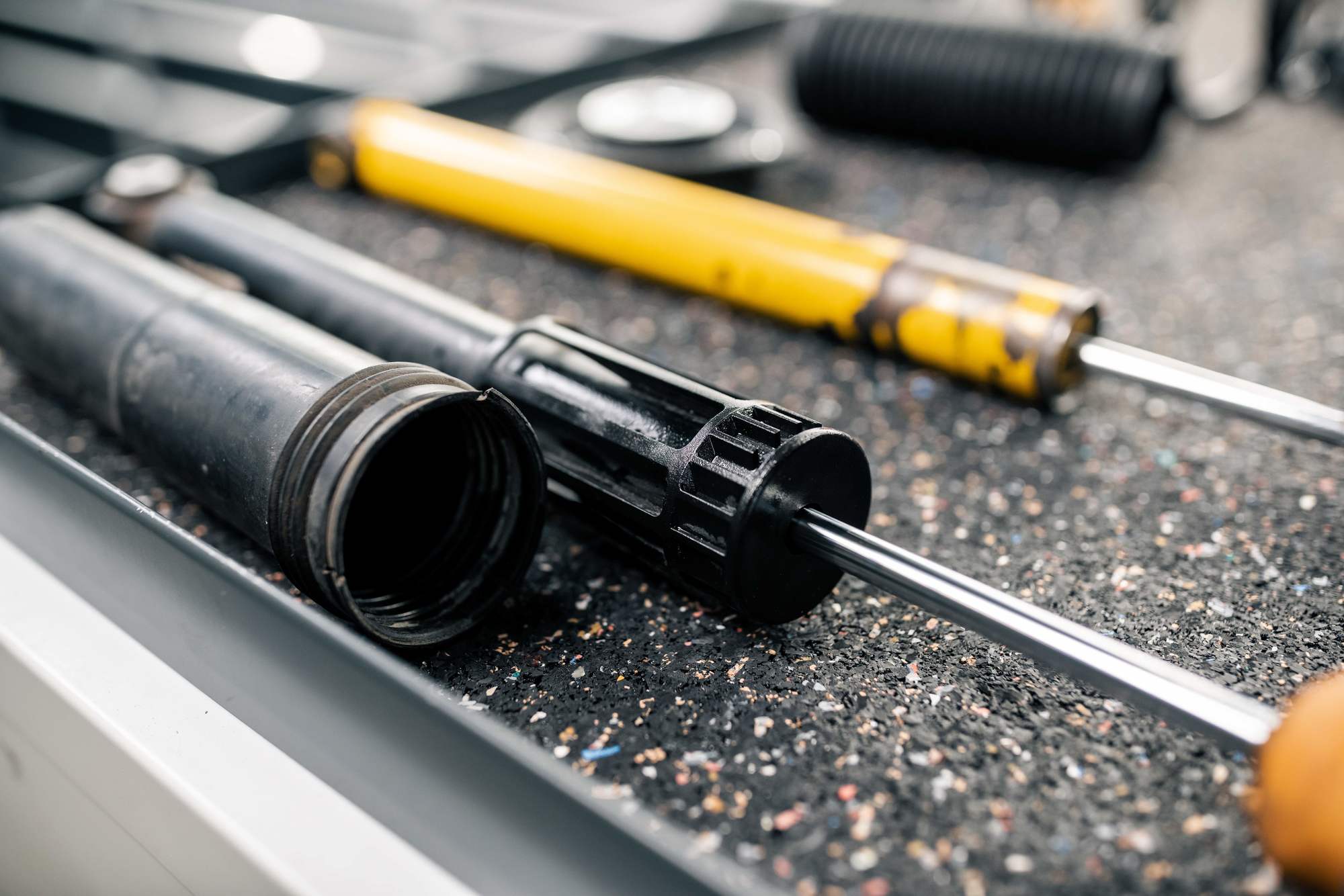

During the visual inspection on the lifting platform, a look at the four tyres can also reveal whether there is damage to the suspension. If the tread is washed out or there are abnormalities in the tread pattern, this is often an indication of suspension defects.
Greatest risk: ineffective shock absorbers
If oil is detected on the shock absorber, an oil leak must be assumed. “A leaking shock absorber eventually becomes ineffective”, says Mustafa Yavuz. “The traction of the wheel deteriorates. The wheel can flutter, the vehicle can roll more. The function of the assistance systems ABS and ESP can also deteriorate immensely.” Shock absorbers, however, continuously lose damping performance even without external conspicuities. In this case, too, road contact may decrease at some point.
A worn dust boot may then no longer protect the piston rod of the damper. This can damage the piston rod, for example, due to stone chips. The sealing package then threatens to become leaky, so that shock absorber oil can escape. Furthermore, the strut bearings as a link between the suspension and the vehicle as well as the bump stops should be checked.
Last but not least, motor vehicle professionals must also take a critical look at the suspension spring to detect any corrosion or even a breakage during the visual inspection.
Suspension and shock absorber knowledge for independent workshops and automotive professionals, presented in a practical and entertaining way: Our experts from the BILSTEIN Academy will provide you with valuable tips and concrete assistance.
Discover all workshop tipsSales potential and stronger customer loyalty for garages
The advantage of a professional suspension check for garage customers is obvious: they either leave the garage with the good feeling that their suspension, including shock absorbers, is in perfect condition. Or that they have a completely new and safer driving experience thanks to new components.
If you have any questions on the subject of shock absorbers and suspension in the workshop and in the trade, the Technical Support of the BILSTEIN Academy is always ready to help!
To the BILSTEIN Academy